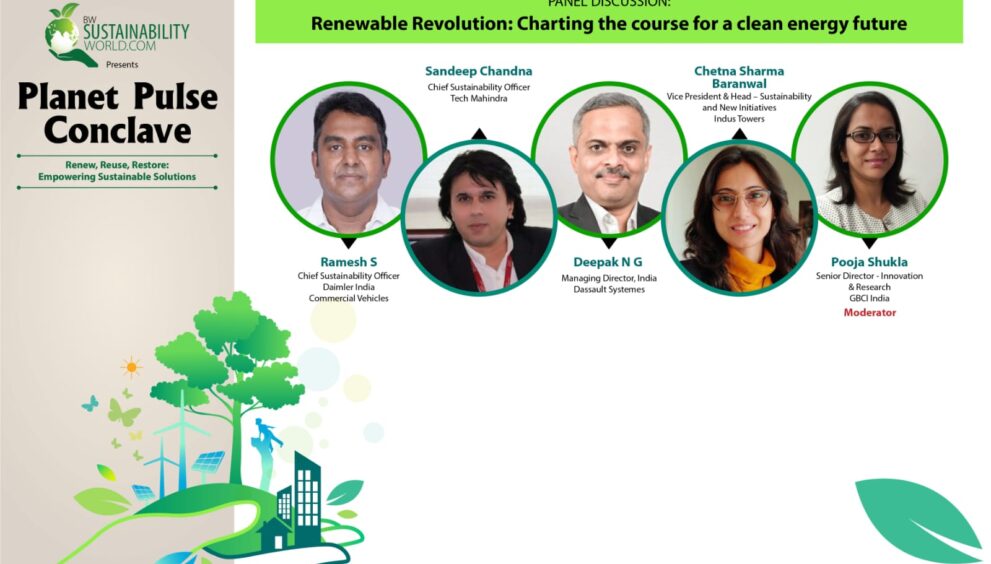Green Synergies: How Innovative Collaborations Are Solving Environmental Challenges

From investment in research and development (R&D) to the technological advancements with battery storage and pumped hydro, experts talked about the importance of renewable energy and the terms of adopting it in India and how it is moving in the right direction
As the world deals with the rising impact of climate change, experts have said that a shift towards sustainable practices is now extremely critical. To commemorate World Environment Day on 5 June 2024, experts while speaking at an event pitched for a multifaceted approach that prioritises renewable energy, sustainable steps in businesses or daily life and eco-friendly technologies.
They emphasised equally sharing the benefits of advancements with everyone in society and engaging in meaningful dialogue with professionals to renew commitment to creating a sustainable future as well as inspiring one another with our sustainable actions.
“Our plant operations will become carbon neutral by 2025, today we are already at 84 per cent carbon neutral plant. Next year we will be completely carbon neutral,” said Ramesh S, Chief Sustainability Officer, Daimler India Commercial Vehicles.
He further elaborated on the innovative technologies that are currently in the piloting stage which, by 2050 will reduce 50 per cent of the carbon emissions.
Sandeep Chandna, Chief Sustainability Officer, Tech Mahindra explained that policies, and processes which make renewable energy simpler and how companies, cities or countries are using this old methodology of renewable energy are factors that would impact the adoption of sustainable energy.
“Technology plays an important role here from capturing what kind of energy is coming and what is the kind of impact second is how this is going to impact the overall road map,” Chandna added.
In a time when the usage of artificial intelligence is continuously growing, the concept of artificial photosynthesis that can mimic nature’s ability to convert sunlight into chemical energy to produce either renewable fuels like hydrogen or methane is being introduced.
The aim of creating sustainable energy is not just creating a product but also using sustainable methods and materials to create a product.“As important as how the products are useful, how they are made is also very important,” said Deepak N G, Managing Director (India), Dassault Systemes.
At Dassault Systemes, the MD stated that the company has ESG targets and KPIs to ensure that they can contribute their best. He added that a product may be extremely useful and contribute to sustainability, however, if 200 wasted prototypes were created to make it, they leave a large carbon footprint. Therefore, the use of simulation and virtual creation of the product may be a viable solution.
Renewable energy that are at a stage of viability still have barriers prohibiting people from adopting them. While explaining the importance of translating policies into implementation, Chetna Sharma Baranwal, Vice President and Head and New Initiatives, Indus Towers said, “Your technology may be commercially deployable but unless and until the entire backward forward integration is done in terms of the supply chain for that to work eventually it will not work.”
Chetna also talked about opportunities for collaboration and said that collaboration is mainly between the government and private sector. She stated that the government has to understand the challenges of industries, you will not be able to execute the industry-specific schemes
While speaking at BW Sustainability World’s BW Planet Pulse Conclave, moderator- Pooja Shukla, Senior Director- Innovation and Research, GBCI India reiterated the role of technology and innovative solutions like artificial photosynthesis in achieving sustainable energy, and also sustainability in the overall process of digital tech.






























































































































































































































































































































































































































































































































































































































































































































































































































































































































































































































































































































































































